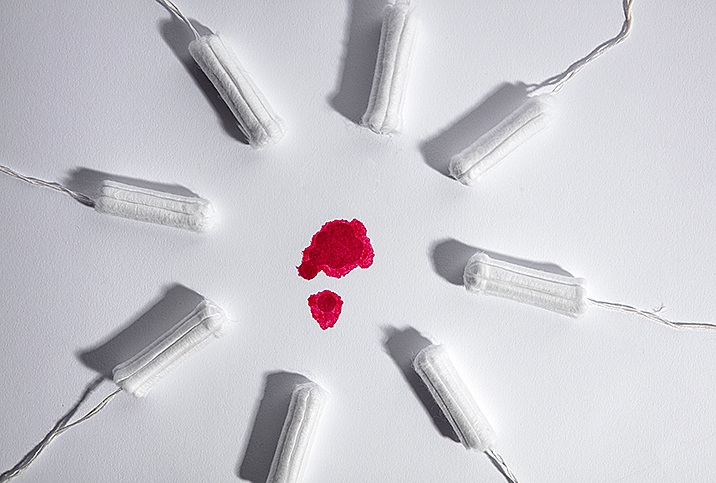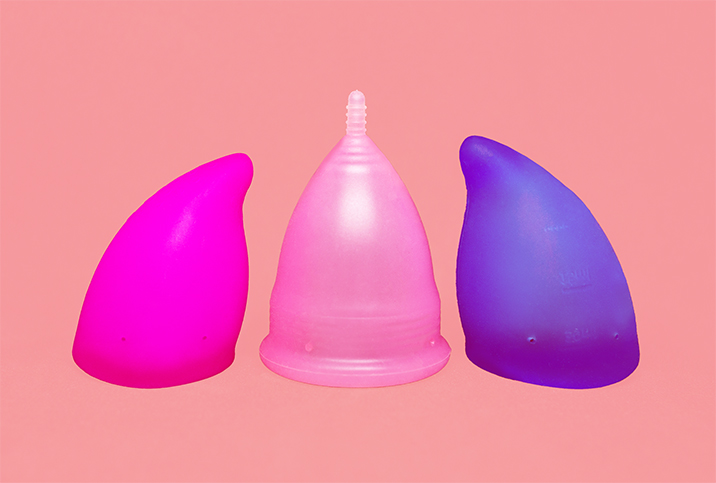Period Products for Women: Myths & Misconceptions

Women can choose from an array of menstrual products based on their lifestyle and personal preference, but myths and misconceptions about various period products often leave many women confused about their best options.
What follows are common myths about period products, handily debunked to help you make the right decision and put your mind at ease.
Myth: High-absorbency tampons are the best option.
Reality: Some women opt for high-absorbency tampons over their regular- or light-absorbency counterparts under the impression they can be worn for longer periods of time and changed out less frequently. However, if your flow isn't heavy, wearing high-absorbency tampons can actually increase your risk for toxic shock syndrome, a rare, life-threatening condition that can cause serious symptoms, including fever, vomiting and seizures. To reduce your risk of toxic shock syndrome, wear tampons with the lowest level of absorbency you need to handle your flow.
Myth: Maxi pads should be good all day.
Reality: Not necessarily. It depends on your flow and level of comfort. There is no definitive time frame regarding how often you should change your maxi pad, but changing it every two hours may be ideal if your flow is heavy on that particular day or you're wearing pads with ultralight absorbency. The American College of Obstetricians and Gynecologists recommends changing your maxi pad every three to four hours, or more frequently if your period is heavy. At night, it is generally safe to wear a maxi pad for six to eight hours, but you'll want to get a fresh one in the morning. As a general rule, plan to change your maxi pad as often as needed based on your flow and comfort level. Once a pad has menstrual blood on it, bacteria can build up and cause odor.
Myth: Virgins shouldn't use tampons, cups or discs.
Reality: This myth stems from the fear that tampons, menstrual cups and discs can stretch or tear a woman's hymen, robbing her of her virginity, and it's based on misconceptions around whether or not an intact hymen determines virginity. In many cultures, the only way to lose your virginity is to have sexual intercourse, so if you've been using tampons, menstrual cups or menstrual discs and have never had sex, know that you are still a virgin.
Myth: Menstrual products can get lost in my body.
Reality: Your cervix, at the end of the vaginal canal, stops these products from entering the uterus. In other words, it is impossible for your tampon, cup or disc to travel anywhere else in your body. Sometimes your tampon string may work its way up into your vaginal canal, or your cup or disc will shift to sit higher up against the cervix. To counteract such issues, bear down with your stomach muscles; that action often makes your period products easier to reach and remove.
Myth: I can't swim while wearing menstrual products.
Reality: All menstrual products, with the exception of pads and panty liners, can be worn while swimming and not leak any blood into the water. Some women prefer to avoid swimming during their period for fear of leaving behind a telltale trail in the water, but menstrual products are designed to capture the flow, even when you're swimming. Cups, discs and tampons are ideal for days you spend at the beach or pool, though tampons may absorb water through the string and need to be replaced more frequently.
In the event you ever have questions or concerns about the efficacy of period products, don't hesitate to contact the manufacturer of the products directly or visit their website for answers. Many times, the manufacturers of period products are more than happy to put any myths and misconceptions you may have to rest.


















